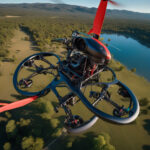In the competitive realm of artificial intelligence, Google has set a new standard by testing its Gemini AI against Anthropic’s Claude. This evaluation not only highlights technological advancements but also raises important questions about the future of AI ethics, accuracy, and industry leadership.
As artificial intelligence models become increasingly sophisticated, the demand for comprehensive evaluations of their capabilities intensifies. Google’s Gemini AI has been under scrutiny as it seeks to position itself as a frontrunner in the AI landscape amid fierce competition from emerging players like Anthropic. This comparison is pivotal, not only for Google but for the entire tech industry, signaling a shift in how AI performance is gauged.
Understanding the AI Landscape
Ethics and accuracy are at the forefront of AI discussions today. The competition between Google and Anthropic exemplifies this trend. Google’s Gemini AI, which has demonstrated impressive capabilities in natural language processing, machine learning, and creative tasks, is now being directly compared to Claude, a model developed by Anthropic known for its ethical framework and emphasis on safe AI usage.
This head-to-head analysis encourages transparency in the way AI technologies operate. The tech community is increasingly recognizing that understanding each model’s strengths and weaknesses is essential for responsible deployment. For instance, while Gemini AI shines in data handling and response generation, Claude’s design prioritizes ethical considerations, exemplifying the different paths companies are taking in AI development.
Benchmarking AI: What’s at Stake?
Testing Gemini AI against Claude involves more than just comparing functionalities. It embodies a larger narrative about the responsibility tech companies have in deploying AI. In an era where AI affects decision-making processes in businesses, healthcare, and education, the implications of using these models are profound. For example, AI systems error can lead to misinformation, biased decision-making, or violations of privacy. Therefore, ensuring that models are not only effective but also ethically sound is crucial.
Real-World Applications: Examples in Practice
The evaluation of these AI models does not only remain confined within academic or technical circles; it translates to real-world applications that impact lives. For example, in the healthcare sector, where AI systems might assist in diagnosing diseases or suggesting treatments, accuracy is non-negotiable. A flawed AI model could result in dire consequences for patient health.
Moreover, businesses employing AI for customer service and consumer interactions need to ensure their automated systems do not misinterpret human emotions or needs. The ramifications of such mistakes can lead to customer dissatisfaction and loss of trust in technology. Therefore, comparing models like Gemini and Claude enables consumers and businesses to make informed decisions about which AI to adopt based on proven capabilities and ethical safeguards.
Future Prospects
As Google further refines its Gemini AI, ongoing comparisons with other models, like Claude, will shape the trajectory of AI development. The industry is witnessing a push for collaboration over competition, with companies sharing research and findings to enhance overall model performance and safety standards.
This benchmarking exercise could lead to a set of best practices and guidelines that not only serve to improve AI capacities but also help uphold ethical standards across the board. As competitors refine their approaches based on each other’s strengths and pitfalls, it is the consumers and society that ultimately benefit. The dialogue on responsible AI use will likely continue to evolve as more companies engage in similar evaluations.
Conclusion
The competition between Google’s Gemini AI and Anthropic’s Claude represents a significant moment for the AI industry. As these models undergo rigorous testing, both potential risks and incredible opportunities are apparent. Companies must prioritize not just technological advancement but also the ethical implications of their AI systems. As the world navigates this complex landscape, continuous evaluation and benchmarking will be crucial in ensuring that AI technologies serve humanity’s best interests.












